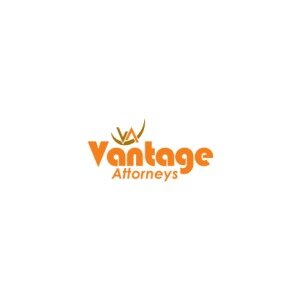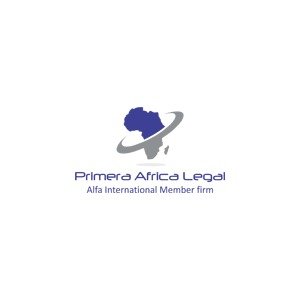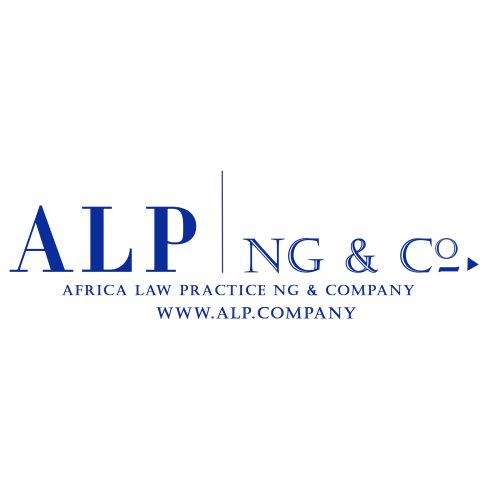Best Energy, Environment & ESG Lawyers in Abuja
Share your needs with us, get contacted by law firms.
Free. Takes 2 min.
List of the best lawyers in Abuja, Nigeria
About Energy, Environment & ESG Law in Abuja, Nigeria
Energy, Environment, and ESG (Environmental, Social, and Governance) law covers the legal rules and policies relating to the generation, distribution, and regulation of energy, as well as the protection of the environment and responsible business practices. In Abuja, Nigeria, these laws are dynamic and aim to address the challenges of sustainable development, environmental preservation, and responsible corporate conduct. The growth in Nigeria’s energy sector, the need for corporate accountability, and increasing concern about environmental issues make this an important area of legal practice for businesses and individuals alike.
Why You May Need a Lawyer
Navigating the complex framework of Energy, Environment, and ESG laws can be challenging. You may need legal assistance if you are:
- An investor or company seeking licenses or permits for energy operations
- Facing regulatory compliance issues, fines, or government investigations
- Planning a project that could impact the environment and need Environmental Impact Assessments (EIA)
- Involved in land acquisition for energy or infrastructure projects
- Affected by pollution or environmental hazards
- Negotiating renewable energy contracts or power purchase agreements
- Seeking to comply with ESG frameworks or international sustainability standards
- Addressing community or stakeholder grievances
- Needing guidance on climate change policies or carbon markets
- Dealing with litigation or alternative dispute resolution in these sectors
A lawyer can help you understand your obligations, protect your interests, and guide you through regulatory processes.
Local Laws Overview
Nigeria has established a diverse legal and regulatory framework for Energy, Environment, and ESG matters. In Abuja, the following key local laws and guidelines apply:
- Petroleum Industry Act, 2021: Governs operations in the oil and gas sector, emphasizing transparency, local content, and host community development.
- Electric Power Sector Reform Act, 2005: Lays out the structure for electric power generation, transmission, and distribution, including independent power producers and market terms.
- Environmental Impact Assessment Act, 1992: Mandates EIAs for projects with potential environmental effects and sets out procedural requirements.
- Nigerian Minerals and Mining Act, 2007: Regulates exploration and mining activities, including environmental obligations for miners.
- National Environmental Standards and Regulations Enforcement Agency (NESREA) Act: Sets environmental compliance standards and enforcement mechanisms.
- Federal and State Environmental Protection Laws: Include waste management, pollution control, water and air quality, and remediation requirements.
- ESG Guidelines: Nigerian Stock Exchange and other bodies provide corporate governance and sustainability guidelines for companies.
Abuja, being the seat of government, is home to key regulatory agencies responsible for implementing these laws. Companies and individuals must ensure compliance to avoid penalties and reputational risks.
Frequently Asked Questions
What is the role of ESG in Nigerian business law?
ESG principles encourage companies to operate transparently, responsibly, and with regard to environmental and community welfare. While ESG is not always legally mandatory, it is increasingly incorporated into regulations, investor requirements, and reporting standards in Nigeria.
When is an Environmental Impact Assessment (EIA) required?
EIAs are mandatory before any major project or development that could significantly affect the environment, such as infrastructure, mining, energy, and industrial projects, commences in Nigeria.
Which agencies regulate the energy sector in Abuja?
Key agencies include the Nigerian Electricity Regulatory Commission (NERC), Department of Petroleum Resources (DPR), Nigerian Upstream Petroleum Regulatory Commission (NUPRC), and the Rural Electrification Agency (REA).
Who enforces environmental laws in Abuja?
The National Environmental Standards and Regulations Enforcement Agency (NESREA) is the lead federal agency for enforcing environmental standards and regulations.
What permits are needed to operate in the Nigerian energy sector?
Depending on the type of energy activity, permits may be required from NERC, DPR, Ministry of Environment, and other sectoral regulators. These may include licenses for generation, distribution, and sale of energy, as well as environmental permits.
Are there incentives for investing in renewable energy?
Yes, the government provides tax reliefs, duty waivers, and other incentives for renewable energy projects to encourage clean and sustainable energy investments.
What is local content in energy projects?
Local content refers to policies that require Nigerian participation and the use of local resources, labor, and materials in energy projects to boost the local economy.
How are environmental disputes resolved in Abuja?
Environmental disputes can be resolved through courts, alternative dispute resolution mechanisms, or administrative hearings before regulatory agencies like NESREA.
Do companies have to report on their ESG activities?
Listed companies are encouraged and, in some cases, required by the Nigerian Stock Exchange and regulatory bodies to disclose information on ESG practices and sustainability performance.
What are the penalties for non-compliance with environmental laws?
Penalties range from fines, closure of facilities, suspension of permits, to criminal prosecution depending on the nature and severity of the violation.
Additional Resources
To gain further information or support in Energy, Environment, and ESG matters in Abuja, consider reaching out to the following:
- National Environmental Standards and Regulations Enforcement Agency (NESREA)
- Nigerian Electricity Regulatory Commission (NERC)
- Federal Ministry of Environment
- Department of Petroleum Resources (DPR)
- Nigerian Upstream Petroleum Regulatory Commission (NUPRC)
- Rural Electrification Agency (REA)
- Nigerian Investment Promotion Commission (NIPC)
- Abuja Environmental Protection Board (AEPB)
- Nigeria Stock Exchange (for ESG reporting guidance)
- Non-Governmental Organizations such as Clean Energy Advocates and Environmental Rights Action
Next Steps
If you require legal assistance in Energy, Environment, and ESG matters in Abuja, Nigeria, consider the following approach:
- Identify the specific issue or regulatory requirement you are facing
- Gather all relevant documents and information related to your case or project
- Consult a qualified lawyer or law firm with experience in Energy, Environment, and ESG law in Nigeria
- Engage with appropriate government agencies early to understand compliance needs
- Request a legal opinion or compliance review if you are unsure about requirements
- Be proactive about meeting deadlines for permits, reporting, and regulatory submissions
Professional legal advice will help you minimize risks, ensure compliance, and resolve disputes effectively as you operate within Abuja’s energy and environmental regulatory landscape.
Lawzana helps you find the best lawyers and law firms in Abuja through a curated and pre-screened list of qualified legal professionals. Our platform offers rankings and detailed profiles of attorneys and law firms, allowing you to compare based on practice areas, including Energy, Environment & ESG, experience, and client feedback.
Each profile includes a description of the firm's areas of practice, client reviews, team members and partners, year of establishment, spoken languages, office locations, contact information, social media presence, and any published articles or resources. Most firms on our platform speak English and are experienced in both local and international legal matters.
Get a quote from top-rated law firms in Abuja, Nigeria — quickly, securely, and without unnecessary hassle.
Disclaimer:
The information provided on this page is for general informational purposes only and does not constitute legal advice. While we strive to ensure the accuracy and relevance of the content, legal information may change over time, and interpretations of the law can vary. You should always consult with a qualified legal professional for advice specific to your situation.
We disclaim all liability for actions taken or not taken based on the content of this page. If you believe any information is incorrect or outdated, please contact us, and we will review and update it where appropriate.
Browse energy, environment & esg law firms by service in Abuja, Nigeria
Abuja, Nigeria Attorneys in related practice areas.

















